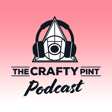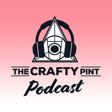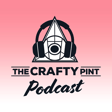
Voyager's Vision
“We don’t produce bulk commodity malt; we’re here to create malts that craft brewers and distillers can leverage off.”
Here at The Crafty Pint we’ve made little secret of our admiration for the work of Stu Whytcross and Brad Woolner, the founders of Voyager Craft Malt. If we were betting sorts, we’d wager their impact – not just on beer and distilling, but farming and their home region in the Riverina – will be as great as any business to have operated within the wider beer world this century.
Ahead of their inaugural Grainstock – a three-day event celebrating grain’s role in brewing, distilling and baking for both industry and consumers – we joined them at the Whitton Malt House. It’s the mighty impressive venue, accommodation, golf range, fishing lake and more created by Southern Cotton that sits alongside Voyager’s equally impressive production facility.
As well as discussing their vision for Grainstock, they tell us how they’ve been competitive mates since primary school, how they first considered opening a brewery before heading down the malting route, how early support from Batch Brewing Co and Wildflower founder Topher Boehm helped them get going, how they’re working with forward-thinking farmers to promote practices that are better for the land while reigniting interest in ancient and forgotten grains, and much more besides, including their world champion malt and desire to help more local malting operations flourish.
From the Riverina to the Northern Kimberley, where James joined Will from a giant termite mound to cast an eye over part three of our guide to beer in Tasmania’s north, Briony Liebich’s guide to tasting beer like a pro, the latest addition to our venue directory – the Bright Brewery-owned PA’s in Carlton, the launch of the sixth GABS Can Design Awards, and the latest giveaways and events for members of our Crafty Cabal beer club.
If you enjoy the show, please like and subscribe, rate and review, and maybe even tell your mates!
Start of segments:
- 13:15 – Voyager Part 1
- 44:57 – Breaking Down Beer Styles with Mogwai Labs
- 51:15 – Voyager Part 2
To find out more about featuring on The Crafty Pint Podcast or otherwise partnering with The Crafty Pint, contact craig@craftypint.com.


